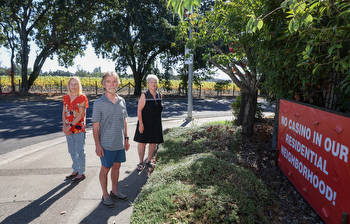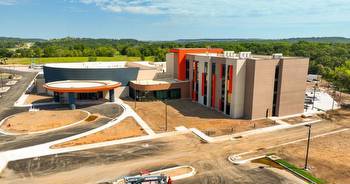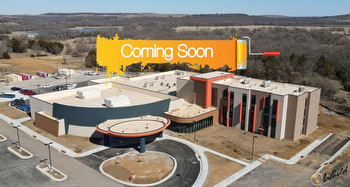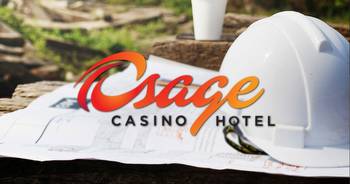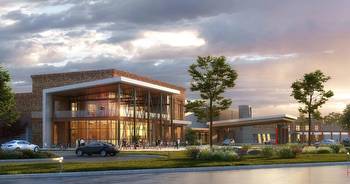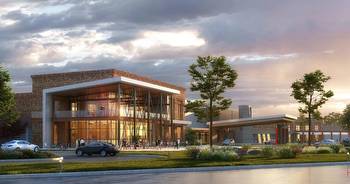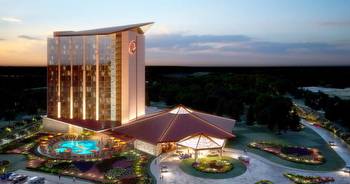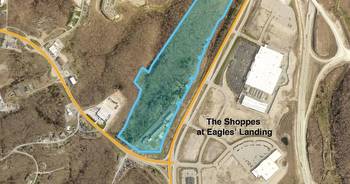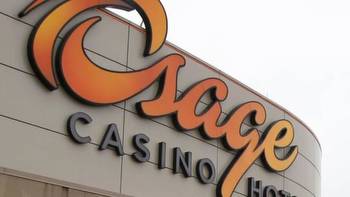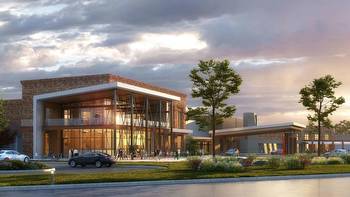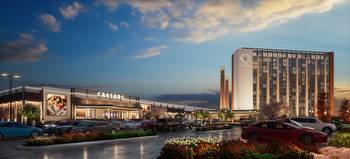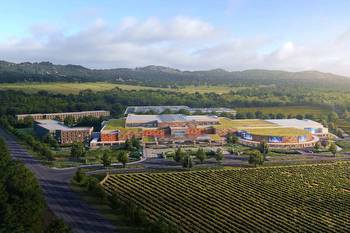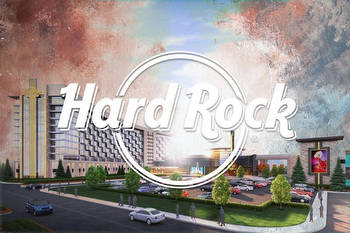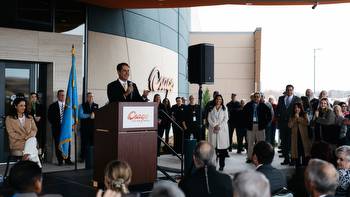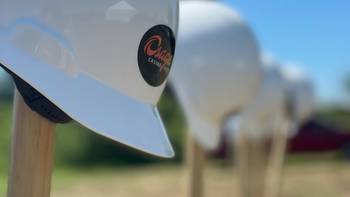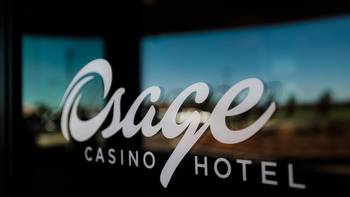The Osage Nation announced it would be investing $60 million to build a casino with hotel, restaurants and entertainment space on 28 acres.

The proposed Osage Nation casino is not a “slam dunk” and citizens have the power to stop the project from moving forward.
That’s the message Joe Roeger and Mike Eagen said they will be sharing with the community whenever and wherever possible because neither believes a casino – especially this casino – will be beneficial to the area.
In late October, the Osage Nation announced it would be investing $60 million to build a casino with hotel, restaurants and entertainment space on 28 acres in Lake Ozark. The proposed complex is to be located at the intersection of Bagnell Dam Boulevard and Osage Beach Parkway where the now-vacant Quality Inn sits. Under the Indian Gaming Regulatory Act of 1988, Native American tribes can establish casinos in states outside their reservations if the land is historical territory, and if the project is approved by the U.S. Interior Department and the governor of the state where the casino is to be located.
At the Nov. 9 Lake Ozark Board of Aldermen meeting Eagen, a Lake- area resident whose job took him to Las Vegas, Nev., 100 times between 1979 and 2019, provided city officials with packets of information on the negative effects of gambling and Indian casino laws. Roeger, owner of First Title Insurance and a resident of the Lake area since 1983, discussed some of the information they received.
“It kind of riles me when I hear people say ‘Oh there’s nothing we can do. It’s already a slam dunk,’ because those are false statements designed to sideline those who may be in opposition to the casino,” he said. “I don’t know if all of you have been brought up to speed on the IGRA (online at https://www.nigc.gov/general-counsel/indian-gaming-regulatory-act) but this is a long process and it is, by no means, over.” According to the Osage News, the official news organization of the Os- age Nation, land-into-trust applications for two new casinos in Bartlesville and Pawhuska, Oklahoma were submitted in 2014 and 2016, respectively. They didn’t receive approval from the U.S. Interior Department for either application until last summer. The Bartlesville Osage Casino Hotel, which will include 101 rooms and 15 suites, pool, and fitness center; a 10,560- square-foot meeting space; a 25,000-square-foot casino with a gaming floor for 500 electronic games; and 600-space parking area is being built on 125-plus acres. The Pawhuska Osage Casino Hotel, which will include 47 rooms and eight suites, fitness center and pool; a 7,800-square-foot meeting space; a 12,000-square-foot casino with 250 electronic games; and 350 parking spaces, is being built on a 60-acre site.
In a later interview, Roeger detailed his concerns about the proposed casino.
“It is a good location, but it is geographically challenged, to say the least, and if you look at the GIS, you’ll see there’s nowhere to expand. Looking at the other casinos the Osage Nation built, it’s easy to see that you can’t build a first-class casino and hotel for $60 million on 28 acres, so contrary to what they’re claiming, this will not be a destination endeavor,” he said. “It’s naïve to think the pie is going to get bigger because of what they’re going to build. Instead, they’re only going to take a slice of the pie that we do have– they’ll take advantage of the economy we built and the 3 million visitors we have. People who are already here may visit the casino, but they’ll be doing it at the expense of the restaurants and other venues.”
Roeger also said while a tribal-state compact would establish the amount of winnings to be turned over to the state, he wasn’t sure how much of that money would trickle down to the local level, where it would be needed to address the issues brought on by problem gamblers and the additional crime that could accompany the venue.
In addition, he said a study – the Economic Impact of Casinos on Home Prices – commissioned by the National Association of Realtors reported several detrimental impacts: • Casinos generate jobs, but many of the jobs created by the introduction of a casino are re- ported to be minimal wage/low paying opportunities, with a few experienced gaming professionals filling the management positions.
• Major social costs are frequently mentioned as associated with casinos.
• A price/distance study found that casinos were a nuisance that negatively impacted nearby residential properties within one mile. In the case of large casinos, the value of each home fell by 4.6%. They noted that the “lights, noise, and traffic that accompany casino operations” were a negative associated with casino operations.
• The regional cycling and recycling of purchasing power in a community can have a multiplier effect on local income and employment—if the money comes from outside the community. However, when the patron base is largely from the local area, the impact on local businesses may be substantially less.
Roeger said these factors combined made it a lose-lose situation for the area. He also said this wasn’t the first attempt to bring an Indian casino to the Lake. In 2004, Indian Nation representatives held a meeting at the Lake to discuss a similar plan. “We read the IGRA and found that it requires the approval of the governor, so we started calling him, raising objections. I guess they got discouraged be- cause they didn’t hold another meeting. We need to do that again.”
At the Nov. 9 meeting, Lake Ozark Mayor Dennis Newberry said although the Osage Nation had asked for an endorsement, he would not be giving one until he had “a whole lot more information .”










